Search Images
Browse Content (p. 255)

Image
The Grave of Mendelssohn
The grave of Felix Mendelssohn (1809-1847) in the cemetery of the Trinity Church in Berlin.
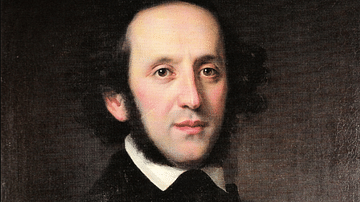
Image
Felix Mendelssohn by Magnus
An oil-on-canvas portrait of Felix Mendelssohn (1809-1847) painted by Eduard Magnus in 1833. (Berlin State Library)
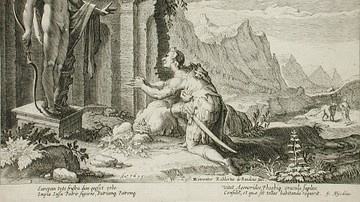
Image
Cadmus Asks the Delphic Oracle Where He Can Find his Sister, Europa
Cadmus Asks the Delphic Oracle Where He Can Find his Sister, Europa, engraving by Hendrik Goltzius, published in 1615.
Los Angeles County Museum of Art, California.
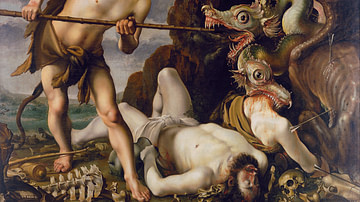
Image
Cadmus Slays the Dragon
Cadmus Slays the Dragon, oil on canvas by Hendrick Goltzius, between 1573 and 1617.
Koldinghus, Kolding, Denmark.
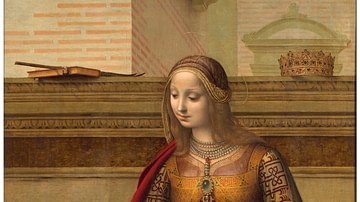
Image
Saint Catherine, by Fernando Yáñez de la Almedina
Oil painting of Saint Catherine by Fernando Yáñez de la Almedina, circa 1510.
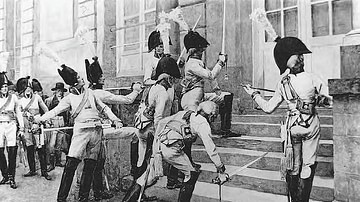
Image
Prussian Officers Sharpen Their Swords on the Steps of the French Embassy in Berlin, 1806
Hoping to provoke war with France, Prussian officers of the elite Life Guards Regiment sharpen their swords on the steps of the French embassy in Berlin in the summer of 1806. Drawing by Felician Myrbach, 1906.
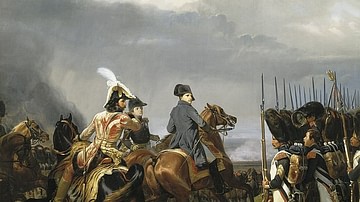
Image
Battle of Jena, 14 October 1806
During the Battle of Jena-Auerstedt (14 October 1806), Napoleon reprimands a grenadier of his Imperial Guard who shouted for an attack. Oil on canvas painting by Horace Vernet, 1836.
Palace of Versailles.
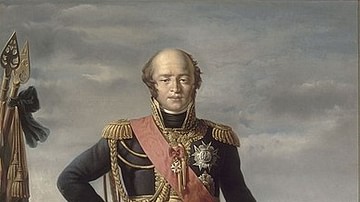
Image
Louis-Nicolas Davout
Louis-Nicolas Davout (1770-1823), Duke of Auerstedt and a marshal of the French Empire during the Napoleonic Wars (1803-1815). Nicknamed the "Iron Marshal" for the strict discipline he imposed on his Corps, Davout never lost a battle and...
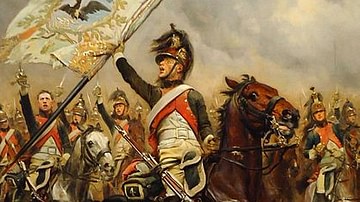
Image
French Dragoon with a Captured Prussian Flag at the Battle of Jena
A French dragoon rides off with a captured Prussian flag at the Battle of Jena-Auerstedt (14 October 1806) during the War of the Fourth Coalition. Painting by Édouard Detaille, 1898.
Musée de l'Armée, Paris.
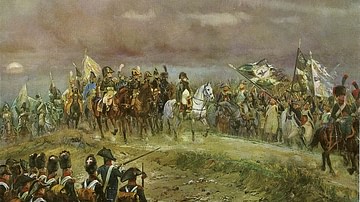
Image
Napoleon After the Battle of Jena
French soldiers present captured Prussian flags to Emperor Napoleon I after the Battle of Jena-Auerstedt (14 October 1806). Painting by Édouard Detaille, late 19th century.